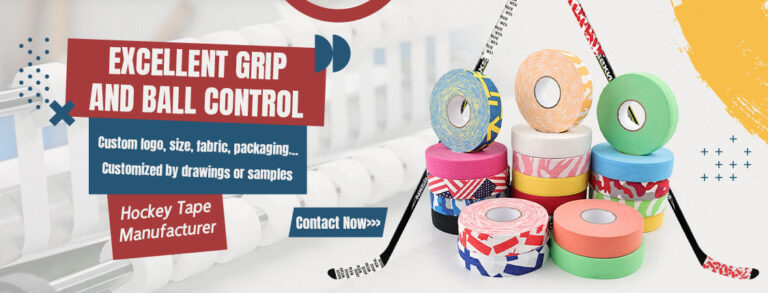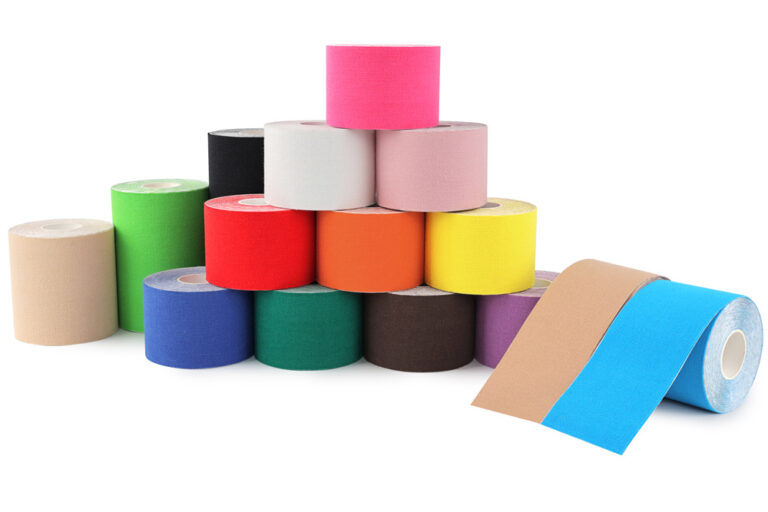You’ve heard of white athletic tape or K Tape as it’s commonly known, but how exactly do you use it? Let us walk you through the basics.
Before we start, here are a few terms to be aware of:
Anchor Point – The correct term for the end of the white athletic tape, usually the last two to three inches.
It is used as a base for sticking white athletic tape. The anchor should not be stretched, make sure to always use it without tension.
Stretch – Typically, you won’t want to stretch the tape to full stretch capacity while in use, but most instructions will call for at least some stretch.
It can be described as little or no stretching, slight or moderate stretching. Or you can see percentages such as 50% stretch to half the tape’s full stretch, 25% not half stretch, 75% half stretch and full stretch, etc.
Bend – If you’re asked to flex a limb or joint, it just means stretching the muscle or flexing the joint. ‘Dorsiflex’ refers to the opposite, eg, the ankle, which means it bends back.
white athletic tape can be tricky to get the hang of at first, and applying the tape to hard-to-reach areas like the back or shoulders can take some help, but generally, once you get used to it, application is straightforward.

Tips for using white athletic tape:
Before you do anything, make sure your skin is clean, dry and free of any oils, lotions or creams. This will allow the tape to stick more securely and ensure the ends don’t peel off.
Do not apply kinesiology tape to damaged or broken skin, if you have particularly sensitive skin, try testing a small portion for 24 hours or so to check that you have no ill effects before applying the full tape to work. Also, if you plan to swim while wearing, make sure to give it at least an hour after you apply.
You don’t always need to stretch the tape when using it, but you usually need to stretch the area of your body where you’re going to use it, unless it’s a joint, in which case you should flex rather than stretch it.
After cutting the white athletic tape into whatever shape you want, a good practice is to round the tape by cutting off the corners.
Once you’ve done this, peel back the backing of the tape about 2 or 3 inches from the portion you cut to form the anchor point.
Apply this anchor point to the skin first, avoiding contact with the previously placed strip, while making sure not to stretch the anchor point or it won’t stick properly.
Lay the white athletic tape over the designated body part, stretching or stretching as you instruct. Once it’s stuck, wipe it all over to activate the head adhesive and seal the strong bond between the skin and the tape.
Try not to wrinkle the tape as this can create unnecessary pressure points.
Let us remind you of shapes you need to know before you paste anything.
Common Ergonomic Tape Shapes
Ergonomic Tape – I Shape
A standard piece of white athletic tape that has not been cut or altered. Ergonomic tapes are usually manufactured as an I-belt. Especially effective when applied to injured muscles.
Ergonomic Tape – Y Shape
A strip of I white athletic tape, cut through the middle to create two “tails” but the ends remain attached.
Ergonomic Tape – Donut Shape
This is achieved by taking a strip of I tape, folding it in half and cutting from the center of the fold rather than the end.
When unfolded, there will be a large “hole” in the middle, but the ends are still connected – like a doughnut.
This technique is often seen on the knee, when the kneecap occupies the hole in the donut and the side of the donut wraps tape around it.



